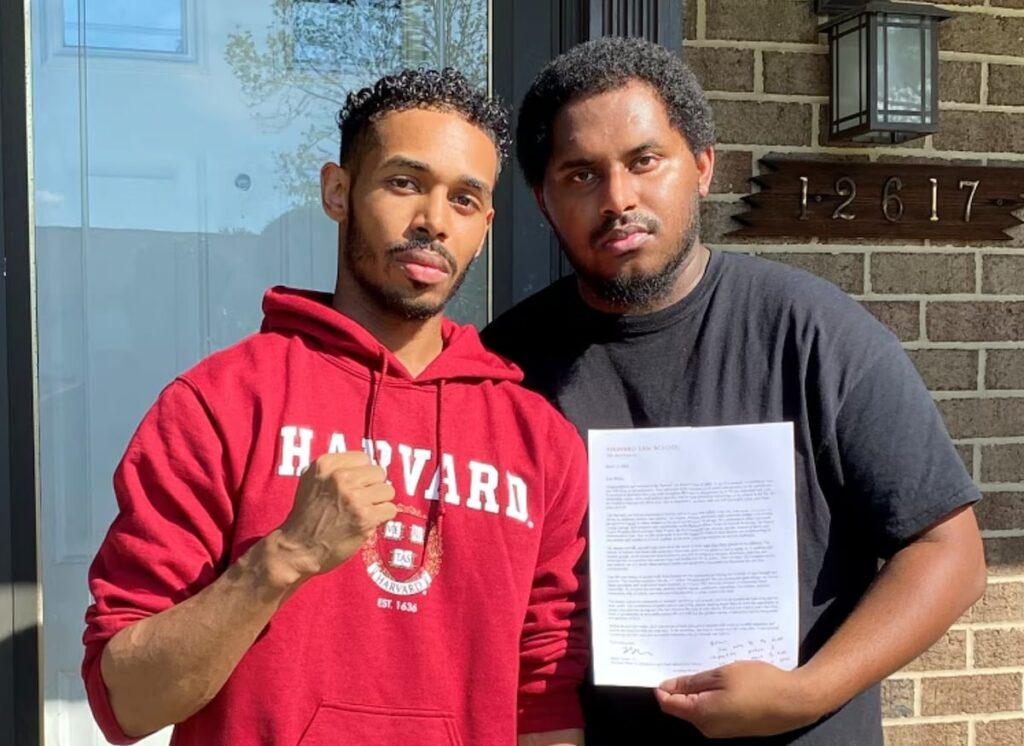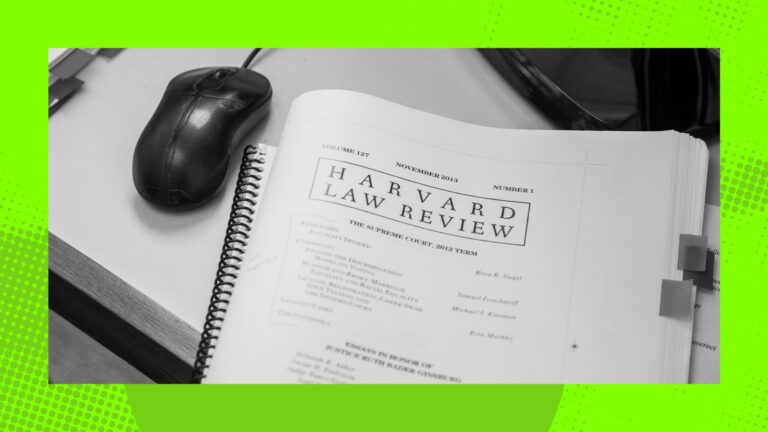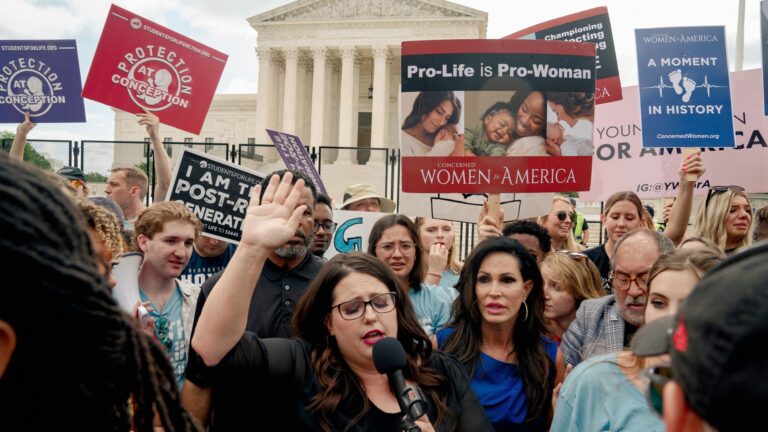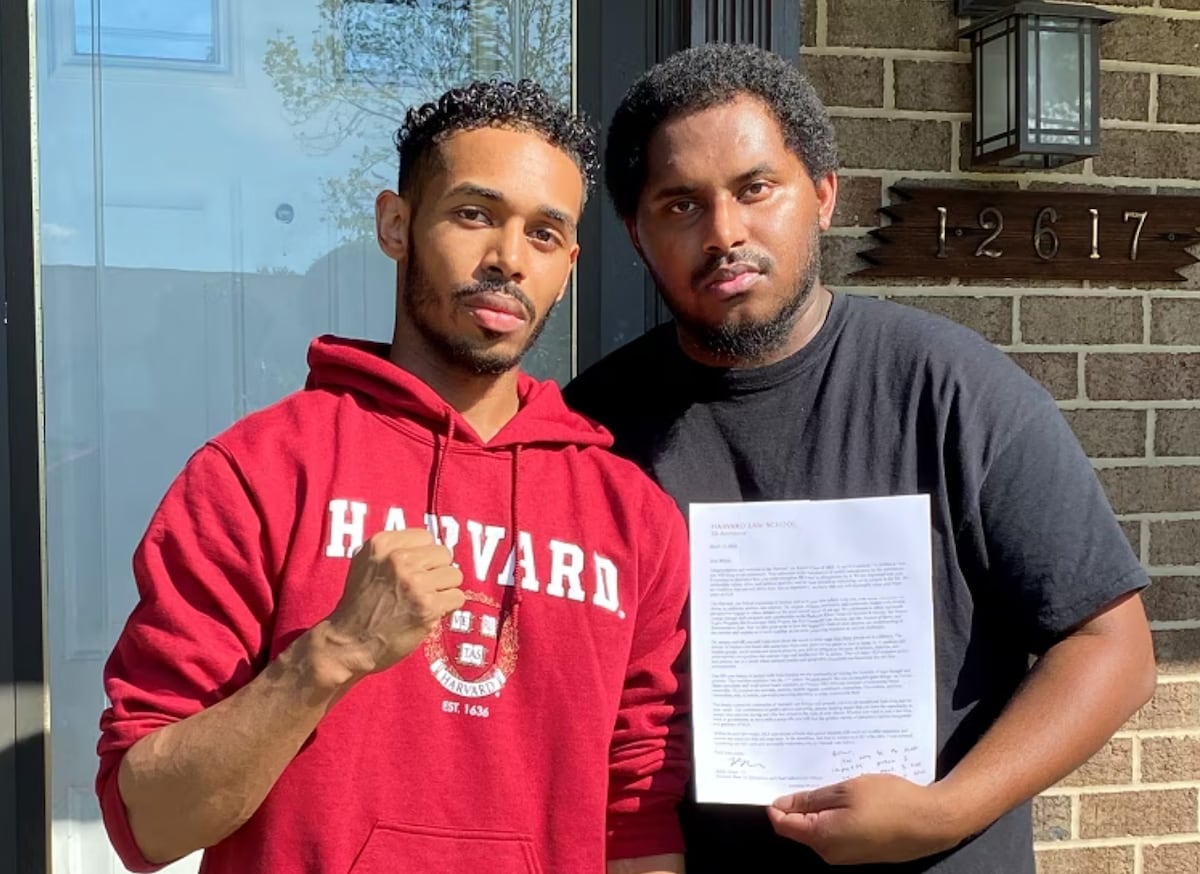From custodian to Harvard Law Grad
More of This

Rehan Staton was heading to class at Harvard Law School when he saw a custodian and greeted her: “Hi, how are you doing?”
“Me?” the custodian replied.
She looked perplexed, Staton recalled, as if she couldn’t understand why he — a second-year law student — was acknowledging her — a janitor.
“Yes, you,” he said back.
“I’m sorry, I didn’t know you were talking to me,” she told him. “Students would usually rather look at the wall than talk to me.”
Staton understood how she felt. Before becoming a student at one of the most prestigious law schools in the country, Staton had been a sanitation worker in Bladensburg, Md., and it was his colleagues there who encouraged him to apply to attend college.
Read the story on Washington Post
What law schools get wrong about public interest careers
Say It Louder

Steve Kennedy is a student at the University of Connecticut School of Law. He has worked for several legal aid organizations and plaintiffs’ litigation firms.
All law students know the gold stars they are supposed to earn: top grades, law review, moot court competitions, competitive research and teaching assistant slots, published journal notes, and so on. Much of this advice stems from the maxim that law students, especially early on, should keep their options open. In practice, this often means attending on-campus interviews and networking events with big firms, chasing prestigious summer associate jobs that are a ticket to a successful (and lucrative) legal career.
This advice, however, does not necessarily apply to all legal careers. If your professional future involves crushing workers trying to unionize, facilitating the destruction of the environment, or defending child slavery, yes, you may be stuck having to do law review. But for students who want to go into legal aid, public defense, labor law, civil rights, or plaintiff-side work, spending precious free time checking for italicized commas may not be the best use of time.
Read the story on Balls & Strikes
The right wing lawyers trying to suppress the student vote
Less of This

A top Republican legal strategist told a roomful of GOP donors over the weekend that conservatives must band together to limit voting on college campuses, same-day voter registration and automatic mailing of ballots to registered voters, according to a copy of her presentation reviewed by The Washington Post.
Cleta Mitchell, a longtime GOP lawyer and fundraiser who worked closely with former president Donald Trump to try to overturn the results of the 2020 presidential election, gave the presentation at a Republican National Committee donor retreat in Nashville on Saturday.
The presentation — which had more than 50 slides and was labeled “A Level Playing Field for 2024” — offered a window into a strategy that seems designed to reduce voter access and turnout among certain groups, including students and those who vote by mail, both of which tend to skew Democratic.
Read the story on Washington Post
The plan to end abortion everywhere, regardless of what voters want
Speaking Of...

The unpleasant reality facing the anti-abortion movement is that most Americans don’t actually want to ban abortion.
This explains why the pro-life summer of triumph, after the U.S. Supreme Court overturned Roe v. Wade, led to a season of such demoralizing political outcomes. Voters in Montana, Kansas, and Kentucky in November rejected ballot measures to make abortion illegal; just last month, in Wisconsin, voters elected an abortion-rights supporter to the state supreme court.
Yet the movement’s activists don’t seem to care. Thirteen states automatically banned most abortions with trigger laws designed to go into effect when Roe fell; a Texas judge this month stayed the FDA approval of the abortion pill mifepristone, setting in motion what is sure to be a drawn-out legal battle; and some lawmakers are pursuing restrictions on traveling out of state for the procedure—what they call “abortion trafficking.”
Even as the anti-abortion movement lacks a Next Big Objective, a new generation of anti-abortion leaders is ascendant—one that is arguably bolder and more uncompromising than its predecessors. This cohort, still high on the fumes of last summer’s victory, is determined to construct its ideal post-Roe America. And it’s forging ahead—come hell, high water, or public disgust.
Read the story on The Atlantic









